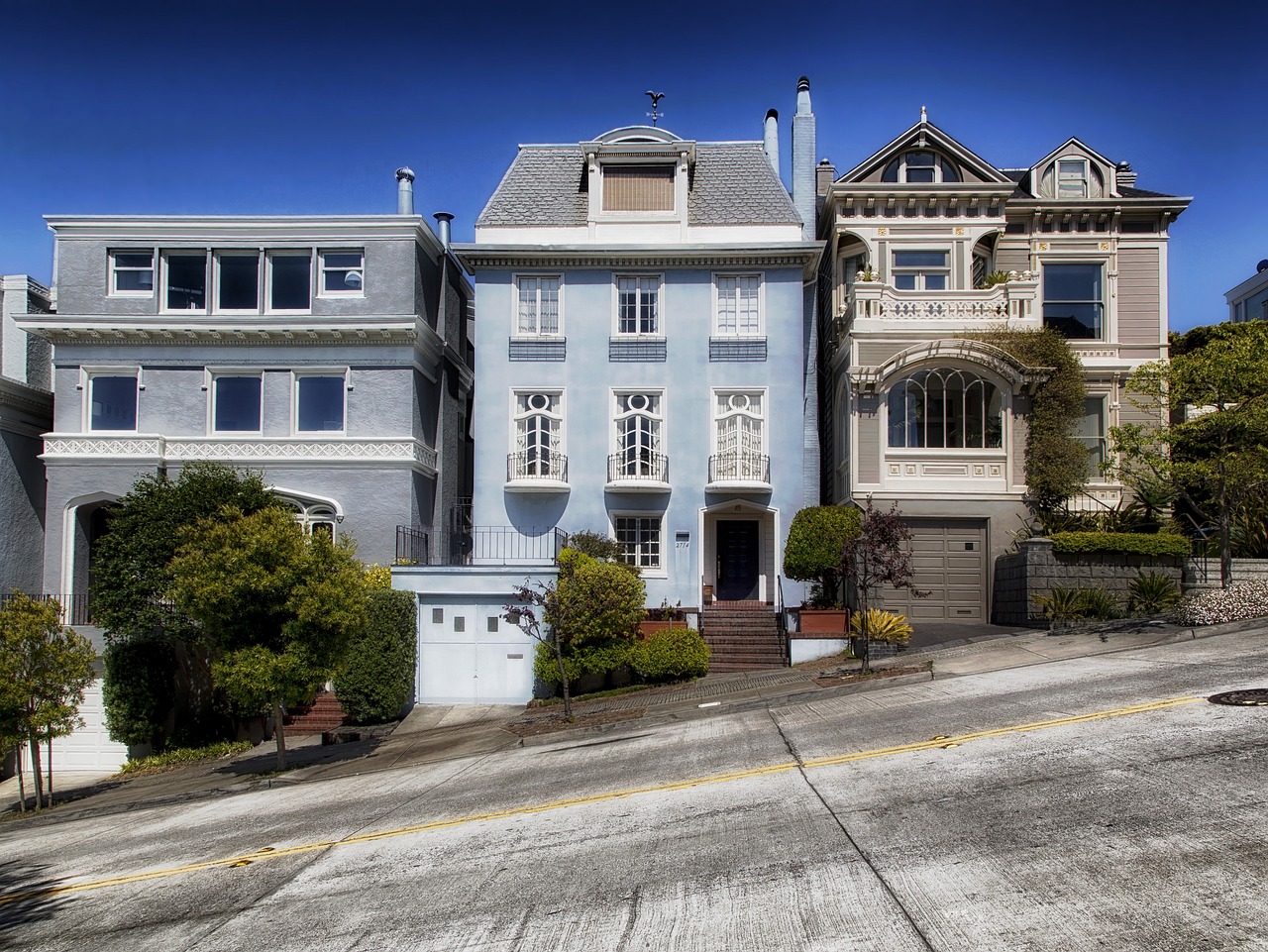The Perfect House To Raise A Family In A Big City

Since 1999, I’ve been climbing up the property ladder to find the perfect house in a big city. What I’ve realized is that there’s no such thing as the perfect house. There’s a good-enough house or an almost-perfect house, but there’s always at least one or two things missing to make a house ideal.
Additionally, the perfect house changes as your household size changes. As a single individual, the perfect house may be a one-bedroom apartment in a nice part of town. As a couple, the perfect house may be a two-bedroom single-family home with a view. With children, the perfect house may require something else.
Now that I’m a parent who will likely raise children in a big city their entire pre-adult lives, I’d like to touch upon all the considerations of what makes a perfect house.
There’s no physical asset that will provide you as much joy as buying a great house for your family. Not a fancy car or a rare watch. Not even a life-size golden statue of you outside your alma mater after a big donation.
Once you find that house, you will feel like all your hard work and sacrifice were worth it. A nice house will also motivate you to continue growing in your current endeavor.
What I Used To Think Was The Perfect House In A Big City
If you choose to live in a big city, land, living space, and privacy are at a premium. I wanted all those things but couldn’t afford any of them!
When I lived in Manhattan, I rented a 360-square-foot studio apartment with my high school buddy. We had no space, no yard, and absolutely no privacy. But I didn’t care because I was working 70 hours a week in the office. At the time, the perfect house cost the least amount possible!
A couple of years later, I thought the perfect house was a $10 million brownstone on the Upper West Side. Just owning your entire building was massive. Of course, the cost was unaffordable to all but the select top 0.1% of the wealthiest people. But a young man could always dream.
Twenty-five years later, I don’t think a 20-foot-wide brownstone on five levels is the perfect house to raise a family. So many stairs aren’t great for the knees as we age. In addition, stairs can be dangerous for babies and toddlers.
I also don’t want to be crammed so closely to my neighbors after paying so much, nor do I want such a small backyard for my children to play in.
OK, if you twist my arm, I guess I could raise my family of four in a $14 million brownstone with 7 bedrooms, 5 bathrooms, and 7,045 square feet below. There are worse places to live. But it’s not the perfect city house for me.

The Perfect House Changes Over Time
In 2003, I bought a two-bedroom, two-bathroom, 990-square-foot condominium with a balcony and a park view for $580,500. At the time, I thought the price was a steal because similar-sized condos facing Manhattan’s Central Park would easily trade at double the price. In my mid-20s with a girlfriend, this was the perfect “house” in a big city for us.
In 2005, I thought I had bought a perfect house: a three-bedroom, two-bathroom, 2,070-square-foot single-family home with a small backyard. The house had two stories over a ground-floor garden room with a bathroom, which added an additional unwarranted 230 square feet.
Our vision was to use the garden room for guests, one of the bedrooms as an office, one as a nursery, and one as our main bedroom. We imagined taking our little one to play in the small backyard and eventually growing tall enough to pick some apples.
The Vision Didn’t Pan Out
We planned to grow into our new house. Sadly, our children never came, so we owned a house that was too big for almost ten years. What a waste. At least we rented out the garden room for most of the years we were there to generate some semi-passive income.
We had to sacrifice location in order to just afford a single-family home on the north side of San Francisco. Luckily, we were able to sell the house for a profit and reinvest the proceeds in stocks and private real estate to earn 100% passive income and distributions.
Remodeling Helps You Create The Perfect House
Through our experience owning a house that was too big, we downsized to a 20% smaller, but 40% cheaper house in 2014 with ocean views on the west side of San Francisco. It only had two bedrooms across 1,720 square feet at the time.
Over the course of a year, we remodeled the home by building a third bedroom and a small office, expanding to about 1,970 square feet. We also built a deck, installed a hot tub, and created a luxurious master bathroom.
To us, this was the perfect house for just the two of us or to raise one child. Being able to remodel a house to our tastes and desires helped us temporarily create the perfect house.
Home Improvement Example Through Remodeling
After finishing the ground floor space from a “rumpus room” into a main bedroom and office, I wanted to blow out the walls and create a deck. Coming from Hawaii, I always appreciated indoor/outdoor living, especially if I could see the ocean.
Check out the before and after pictures below.



How awesome is this deck addition?! Adding French doors also brought in much more light, as the room faced west. Since the windows in the house were already 60 years old, it felt great to replace them with something new.
Our son loved playing on the ~300 square foot deck outside. However, we were often paranoid about him falling over, given the deck was 12 feet in the air. Hence, if you are going to build a deck while having children, make sure the railing is vertical, strong, and narrow. Kids will climb horizontal railings and try to get through everything. Please frequently do safety checks.
After finishing all our remodeling projects, the house was perfect for three years. However, with the anticipation of our daughter in December 2019, we looked for more space.
For better sleep, we wanted each child to have their own room, which meant I would no longer have an office to write in. Luckily, a house with one more story (three total) came up for sale two houses down, so we bought it and got to work remodeling that one as well.
Views And Useable Land For The Perfect House
The perfect house for us now has to have both views and usable land (flattish land). I love views of any type of water. Views have a calming aspect to them and are great for one’s mental health. However, the better your views, the less usable land you often have.
In another house, we had views of the ocean on all levels with balconies to enjoy as well. However, the land was steeply sloped because we were high on top of a hill. Luckily, the lower deck was about 720 square feet, which was enough space for our toddler and now baby to scooter and run around on. We even had inflatable pool parties.
However, I anticipated that as the kids grew bigger, they’d want more space. Both our children have what seems like an infinite amount of energy. Therefore, finding a home with a large useable lot was my next mission as a father. In fact, I would say a large usable lot is more important than having amazing views when you have children.
Any parent knows that raising young children can be exhausting. So, having a large lot for them to play on is a godsend because it will help wear them out for bedtime!
The problem is, finding a home with a large useable lot often means the home won’t have views. Hence, if you can find one, the price could trade at a massive premium.
An Enclosed Lot For The Safety Of Your Children
The perfect house doesn’t just have a large usable lot; it also is enclosed for privacy and safety. You don’t want your children running outside with no barriers due to cars and random pedestrians driving or walking by in a big city. Instead, the perfect house has an enclosed front and backyard with a gate.
But finding such a home is extremely rare. The vast majority of homes in big cities, maybe 95%+, have no enclosed front yards. Instead, there’s just the sidewalk, potentially some steps, and then the front gate or door. If the house does have a front yard, it is usually not enclosed.
With the benefit of hindsight, we wouldn’t have wanted to raise our children in the house we lived in for almost 10 years with an unwarranted garden room. It was on a busy street next to one of the busiest streets in all of San Francisco. It would have felt too unsettling to have young kids walk outside with so much traffic, not to mention the elevated pollution from all the vehicles.
One-Story House As The Ideal House To Raise A Family
Ranch-style homes sit on one story. They are desirable due to the lack of stairs and the ease of communicating with other family members. However, given usable land cost a premium in big cities, ranch-style homes are uncommon.
Below is an example of a ranch-style home in San Francisco that sits on a large 8,659-square-foot lot. The lot size is rare given the average lot size is closer to 2,500 square feet. In addition, the home had some views. As a result, the home sold for $1 million over asking, at $5,705,000 in 2024.
You can easily imagine letting the kids, baby, and furry animals out to play in this enclosed yard. How wonderful.
If the home ever comes back on the market again, I suspect it will face another bidding war or receive an outstanding preemptive offer. To have a house you’d find in the suburbs in a big city is highly desirable.

A one-story house is not for everyone. Personally, I don’t want to live in one at the moment because our kids are so loud and rowdy that I would go nuts trying to write!
Yes, ranch-style homes have wings that can be enclosed with a door. But unless your house is over 6,000 square feet, the noise travels quite easily on one level. This house is closer to 3,600 square feet.
If I had to go to an office to work, a one-story house would be more suitable. Perhaps when my kids are both in school full-time and over 10 will I prefer a one-story house more. However, at the moment, a perfect house for us requires more than one story.
Two Stories As The Perfect House With Younger Children
Having two or three stories is more desirable to raise a family in a big city, especially if one or both parents often work from home. Of course, the house’s layout will have something to do with the number of stories as well. Ideally, there are bedrooms on both floors on opposite ends, not on top of each other.
Two stories provide much-needed separation, especially if you have young kids. One level can be a cyclone mess of toys, while the other level can be clean and for adults.
On the kid level, the kids can scream their heads off, and you will be less impacted working in your office upstairs or downstairs. Ideally, there’s a door to rope off the downstairs area to help prevent noise from traveling upstairs or vice versa.
As the kids get older, having the kids on one level and the parents on another level may provide some much-needed privacy for both parties. However, if you have mischievous kids, you run the risk of them doing things they aren’t supposed to.
We have a two-story house now, which we enjoy. However, I hear my kids more often than when we were in our previous house, which is distracting while working. Thankfully, we have a nice yard for them to play outside in.

Three Levels May Be Even Better For Work From Home Parents
Three stories can also be the perfect house, especially if you can enter on the main level and one level goes up while another level goes down. This minimizes a lot of stair usage given most people enjoy the main level and then the bedroom level.
Three stories is fantastic for sound buffering if you are on the top level and your kids are on the bottom level. We had this in our old house, which made me more productive in writing posts on Financial Samurai and my bestseller, “Buy This Not That,” during the pandemic. We were all always at home, so having this separation really helped.
At 47 years old, my knees are still strong enough to walk around a three-story house without difficulty. However, by the time I’m 60, I would prefer living in a two-story house where the main floor has a kitchen, bathroom, living room, and bedroom. In other words, the perfect house when you’re older may be one in which climbing up or down stairs is no longer necessary.
We have this floor plan layout in our existing house now. So, although it’s not perfect from a sound-reducing perspective, it’s going to be more ideal in about five years once my daughter turns 10 and my son 12.
In other words, when buying your perfect house, think how your family’s lifestyle will change during your duration of ownership. Your house might not be ideal now, but it could get better over time.
The Ideal Square Feet Per Person In Household
In terms of the perfect house size, you want enough living space to feel free, but not so much space that you lose that warm and cozy feeling as a family. Smaller houses force family members to interact more, which can be great for building stronger bonds.
When I was in my 20s with no children, I thought 500 square feet per person was ideal. Today, with two young children, the ideal square footage per person has increased to 800 – 1,200. It amazes me how much space children need to run around endlessly, which is why a large useable yard is a requirement.
After about 1,200 square feet per person, the house starts feeling too big, with one too many unused rooms. Wasted space feels like wasting food—not a good feeling. However, if you are rich enough, you might feel OK about waste.
Consider the number of square feet you want per person in your household. In addition, the more levels you have in your house, the lower your required square footage per person because each floor creates more privacy.
The Perfect House Must Have En Suite Bathrooms
We all tend to go to the bathroom at similar times—when we wake up, after we eat, before we go to bed, and several times in between. As a result, having en suite bathrooms for each bedroom is a must. An en suite bathroom is one that is attached to a bedroom, ensuring complete privacy.
How many times have we had to go to the bathroom, only to be locked out because someone is already using it? Annoying! How many times have we walked out of the shower with just our underwear or a towel on, only to run into a guest or family member? Awkward!
With an en suite bathroom, all the awkwardness and privacy issues go away. This was my key realization after my parents visited us in San Francisco after we bought our current house. Because they each had en suite bathrooms, there was minimal-to-zero tension.
Bidets Are A Must
If you’re going to have an en suite bathroom, you had better have a bidet. Toto bidets are my favorite as they have heated seats, warm water, drying functions, automatic close and open functions, and automatic cleaning functions. Using water to clean yourself is vastly superior to only using toilet paper.
Once you go bidet, you will never go back. When looking for the perfect house, make sure there is an electrical outlet behind or near the toilet. Today’s bidet’s need to be plugged in. I will never buy a future home if an electrical outlet is not within three feet of the toilet. Remodelers take note!
Location Matters Greatly For The Perfect House
In general, try to buy on the quietest block possible in the best neighborhood possible. If you can’t find or afford a house on the quietest block, then buy wherever you can in the best neighborhood. Alternatively, from an investor’s point of view, look for more affordable neighborhoods with strong local economic catalysts that will eventually boost demand for homes in that area.
Noise matters greatly, especially after a long day of work or childcare. You want to come home to a quiet place where you can relax. Hearing constant traffic noise and music from neighbors partying or talking can ruin your mood. Having your kids wake up in the middle of the night due to a disrespectful neighbor is infuriating.
Unfortunately, finding a home on a quiet street in a big city can be challenging. The quietest and safest homes tend to be in the hills with the least amount of traffic. Homes on dead-end streets or at dead-ends are also typically quieter. Finally, homes in gated communities or those with HOAs will have noise ordinances that help ensure more peaceful living.
Fortunately, to reduce outside noise, you can add triple-pane windows or “soundproof” storm windows. You can also install carpets throughout your home to better absorb sound. Additionally, look for homes where the main bedrooms are away from the street.
Please spend time camping out at various hours of the day before buying a house. The morning noise could very well be different from the evening noise.
The Perfect House Must Feel Affordable
With all this talk about remodeling, location, views, number of stories, square footage, large lots, and bidets, one thing the perfect house must have is the feeling of affordability.
If you’re feeling stressed about your mortgage and property taxes, then you don’t have the perfect house. Instead, your house will feel like a burden. Such financial strain will also negatively affect your mood and mental health.
The fixer-upper we bought in 2014 felt like the perfect house partially because it was 40% cheaper than the house we used to live in without having to change cities. I wanted to right-size partially because I left my job in 2012.
Gradually spending money to remodel the house and make it new felt wonderful. Even though it wasn’t a fancy house, it felt perfect at the time because it was so affordable.
The house we currently live in felt almost unaffordable for the first six months given the elevated level of financial stress I was feeling. I was essentially house rich cash poor, hoping for no large unexpected expenses. It also took time to get used to large water bills and a heftier property tax bill. However, as my financial situation improved, so did my feeling that we purchased a great house.
Don’t underestimate the positive emotion of being able to save money.
Key Lessons From Finding The Perfect House For Your Family
To recap, here are the important lessons for those of you wanting to find the perfect house in the city:
- No Such Thing as Perfect: There will always be nicer houses for more money, some of which will never be available. Additionally, your idea of a perfect house will change as your household changes.
- Affordability Matters: The almost perfect house is one that fits your budget and your household needs at the time. If the house doesn’t feel affordable, it is not the perfect house.
- Future-Proofing: If you are planning to expand the size of your household, buying a slightly larger house with one more bedroom can make sense. However, your family plans may never come to fruition.
- Upgrade Options: You can always upgrade houses, so don’t think you have to immediately buy the perfect house for what your household size will ultimately be.
- Remodeling Helps: Consider buying a fixer to customize the home as you wish. Otherwise, you will have to pay a premium for a newly remodeled home.
- Lot and Views: The perfect house has both a large usable lot and great views. The combination is rare, so if you find one, try to buy it.
- Space Per Person: When deciding on the house size, think about square feet per person in your household and how your needs might change over time.
- Multi-Story Homes: If one or both parents work from home, having a house with two or three stories may be better than a house with only one story. Each floor creates a different zone for better privacy.
- Proactive Approach: If you do find the perfect house within my 30/30/3 home-buying guide, so will many other people. As a result, you may want to be proactive in reaching out to owners of perfect houses before they come to the market.
- Generational Investment: Once you buy the perfect house, try to keep it forever. This way, you increase the utility of the house and help your children avoid the painful process of finding the perfect house themselves.
Owning A Nice House Is Worth It
There is no physical asset that brings me greater joy and satisfaction than owning a nice primary residence. We spend so much time at home that having a nice house is worth it.
Just make sure to stay flexible because there’s always a nicer house for sale. It will likely take you buying or renting several homes to ultimately find what you want. But once you get there, you will know.
What does the perfect house look like to you in a big city? What is the ideal living size per household member? Have you been able to find a house on a large useable lot with views? What other conditions have I not touched upon that makes a house perfect?
Invest In Real Estate For The Long Run
To invest in real estate without a mortgage, check out Fundrise. Fundrise operates diversified funds that mainly invest in the Sunbelt region, where valuations are lower and yields are higher. The company manages over $3.5 billion for over 500,000 investors taking advantage of the long-term demographic shift to lower-cost areas of the country.
Financial Samurai is a six-figure investor in Fundrise funds, and Fundrise is a long-time sponsor of Financial Samurai. For most investors, investing in a fund is the optimal way to go.




